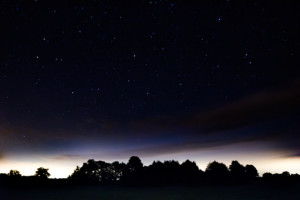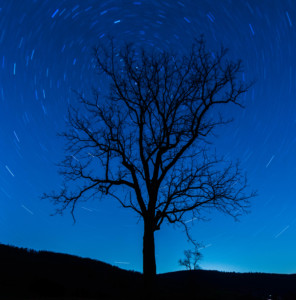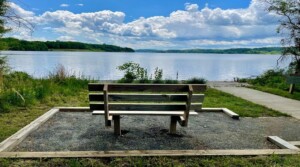
Event cancelled due to predicted overcast conditions.
RSVP here.
Members of the public are invited to view the wonders of the universe through the telescopes of NOVAC volunteers. You do not need to be a member of the club or own any astronomical equipment to attend.
Featured objects will include Venus, Jupiter, Saturn, Uranus, Neptune, and deep sky objects like star clusters, nebulae, and galaxies.
Arrive up to an hour before the event if you want to inspect different telescopes and other visual equipment on the field as they’re being set up. Have a cosmic question? One of our astronomers will be happy to help you. After sunset be prepared to enjoy the wonders of the night sky!
Feel free to walk around and enjoy the different telescopes on display but please ask the owner before using. Please monitor your children if they’re around expensive astronomical equipment. Remember, telescope mirrors are sensitive to cigarette smoke and bug spray. Pets should not be brought onto the observing field as well (unless they are service animals).
Don’t forget to dress warmly! Please check the weather forecast. For lighting, cover a flashlight in red cellophane (the darker the better). Bring along water to keep hydrated and plan on staying the entire evening or as long as the weather allows. If you’re arriving after dark, please dim your vehicle’s headlights as you approach the gravel parking lot.
Note: This outdoor event is weather-dependent and may be cancelled because of significant cloud cover or precipitation.
Please read the C.M. Crockett Page for park details.

RSVP here.
NOVAC supports this event by providing telescope views to visitors.
- Sky Meadows State Park (11012 Edmonds Ln.), behind the Mount Bleak House within the white fence.
- For individuals who are fully vaccinated face coverings and social distancing are no longer required but recommended. Individuals who are not yet fully vaccinated will be asked to continue face covering and social distancing procedures.
- The event’s programs will take place rain or shine.
Please visit the official website for more details.
- Event Website
- Date(s): Saturday, November 13; 5pm to 8pm
- Location: Chantilly, VA- NASM Udvar-Hazy Center (14390 Air and Space Museum Pkwy.)
- Pandemic Precautions:
- For individuals who are fully vaccinated, face coverings and social distancing are optional outdoors. Individuals who are not yet fully vaccinated should continue face covering and social distancing procedures.
- More information here.

Come Fly Away to the Sun
Dr. Kelly Korreck
Sunday, November 14, 2021
7:30 PM to 9:00 PM EST
Online event
Monthly Meeting – Public Invited
Abstract:
What is faster than a speeding bullet? What can fly through turbulence without fastening its seat belt? What can tell us about the origin of our solar system at same time performing its main mission to understand our closest star? NASA’s Parker Solar Probe!
The Parker Solar Probe (PSP) spacecraft was designed to aid in solving 3 mysteries of the Sun as well as the very practical goal of furthering the understanding of space weather. Space weather ranges from billions of tons of material hurled at Earth as Coronal Mass Ejections (CMEs) and solar flares that accelerate energetic particles that could damage electrical power grids on the Earth as well as harm astronauts in space. Parker has made measurements of a stealth or Streamer Blow Out Coronal Mass Ejections (SBO-CMEs) which create space weather. Learning to recognize and characterize these early CMEs help to understand their evolution through the solar system. In addition to studies of the Sun and solar wind, the mission has been able to study Venus, dust, and even capture photos of a comet! Come learn about the coolest hottest mission to the Sun!
Bio:
Astrophysicist Kelly Korreck knows how to handle the heat. She builds and operates instruments to study the Sun and understand its hot explosive outer atmosphere or corona. Her career has taken her from the desert of New Mexico to Japan, to the innermost part of the solar system. Kelly headed up science operations and project management for the SWEAP Suite aboard Parker Solar Probe. She works with engineers and scientists to create the best data from this once-in-a-lifetime mission. Kelly holds a Bachelor of Science degree in Physics and Astronomy and a Ph.D. in Space Physics both from the University of Michigan. When not studying the sun, she can be found near the beach, running, dancing, or in the yoga studio.
CANCELED DUE TO FORECASTED CLOUD COVER.
EVENT AT WIDEWATER STATE PARK IS ON (5-8PM).

RSVP Here.
Widewater State Park and NOVAC will be co-hosting a stargazing event that’s open to the public. NOVAC members will provide telescopes to view objects in the night sky. You do not need to be a member of the club or own any astronomical equipment to attend.
For individuals who are fully vaccinated, face coverings and social distancing are not required. Individuals who are not yet fully vaccinated should continue face covering and social distancing procedures.
This outdoor event is weather-dependent. In the event of significant cloud cover or inclement weather, a presentation in the Visitor Center will replace the stargazing event (topic TBD).
For more information, please visit Widewater State Park’s website.

RSVP here.
NOVAC supports this event by providing telescope views to visitors.
- Sky Meadows State Park (11012 Edmonds Ln.), behind the Mount Bleak House within the white fence.
- For individuals who are fully vaccinated face coverings and social distancing are no longer required but recommended. Individuals who are not yet fully vaccinated will be asked to continue face covering and social distancing procedures.
- The event’s programs will take place rain or shine.
Please visit the official website for more details.

RSVP here.
Members of the public are invited to view the wonders of the universe through the telescopes of NOVAC volunteers. You do not need to be a member of the club or own any astronomical equipment to attend.
Featured objects will include Venus, Jupiter, Saturn, Uranus, Neptune, and deep sky objects like star clusters, nebulae, and galaxies.
Arrive up to an hour before the event if you want to inspect different telescopes and other visual equipment on the field as they’re being set up. Have a cosmic question? One of our astronomers will be happy to help you. After sunset be prepared to enjoy the wonders of the night sky!
Feel free to walk around and enjoy the different telescopes on display but please ask the owner before using. Please monitor your children if they’re around expensive astronomical equipment. Remember, telescope mirrors are sensitive to cigarette smoke and bug spray. Pets should not be brought onto the observing field as well (unless they are service animals).
Don’t forget to dress warmly! Please check the weather forecast. For lighting, cover a flashlight in red cellophane (the darker the better). Bring along water to keep hydrated and plan on staying the entire evening or as long as the weather allows. If you’re arriving after dark, please dim your vehicle’s headlights as you approach the gravel parking lot.
Note: This outdoor event is weather-dependent and may be cancelled because of significant cloud cover or precipitation.
Please read the C.M. Crockett Page for park details.

This event is cancelled because of inclement weather.
RSVP Here.
Widewater State Park and NOVAC will be co-hosting a stargazing event that’s open to the public. NOVAC members will provide telescopes to view objects in the night sky. You do not need to be a member of the club or own any astronomical equipment to attend.
For individuals who are fully vaccinated, face coverings and social distancing are not required. Individuals who are not yet fully vaccinated should continue face covering and social distancing procedures.
This outdoor event is weather-dependent.
For more information, please visit Widewater State Park’s website.
How to Optimize your Astrophotography Setup
Dr. Thomas B. Fowler
Sunday, December 12, 2021
7:30 PM to 9:00 PM EST
Online event
Monthly Meeting – Public Invited
Abstract:
Amateur astronomers know too well that using a $400 Tele Vue eyepiece with a $100 telescope would be a waste of money and the capabilities of the Tele Vue. It would work, but for $500 a much better optical train could be assembled. Similarly, any attempt to get 300x out of a 60mm f//10 telescope using a 4mm eyepiece and a 2x Barlow would be disappointing. A 25 lb. telescope on a flimsy mount might not collapse the mount, but it would not make for good viewing. These examples illustrate that in astronomy as elsewhere, for optimum performance and return on investment, it is necessary to use carefully matched equipment. In this talk Dr. Fowler will explain the issues involved in matching optical equipment, astronomy cameras, and mechanical gear to determine optimal performance and the limits to any given astrophotography configuration.
Bio:
Thomas B. Fowler has been involved in astronomy since 1960. He is the author of over one hundred articles, many reviews for Cloudy Nights, and three books, including a book on astronomy equipment and techniques, “The View Through Your Telescope and How to Make it Better” (2020). He has given presentations to the Northern Virginia Astronomy Club and the TriState Astronomers. He is an independent consultant on technology to the U.S. government and Adjunct Professor of Engineering at George Mason University. He has lectured widely on science, technology, and philosophy. His doctorate from George Washington University is in system theory. He also owns 3 telescopes and too much other astronomy equipment to think about! His books can be ordered from Amazon.

